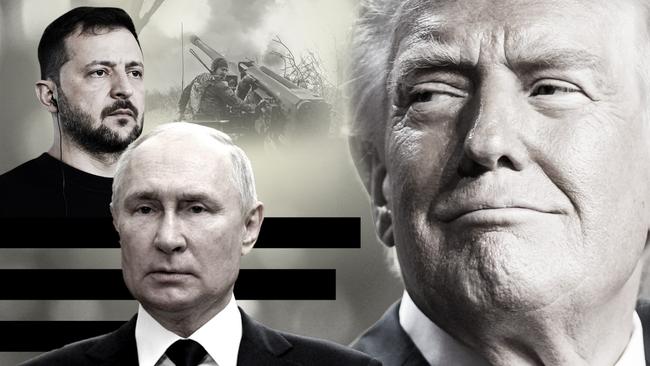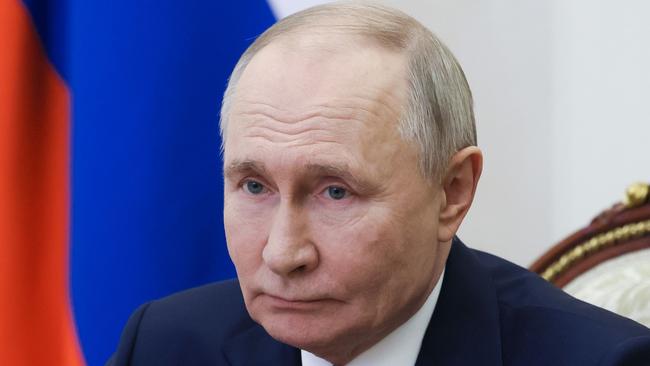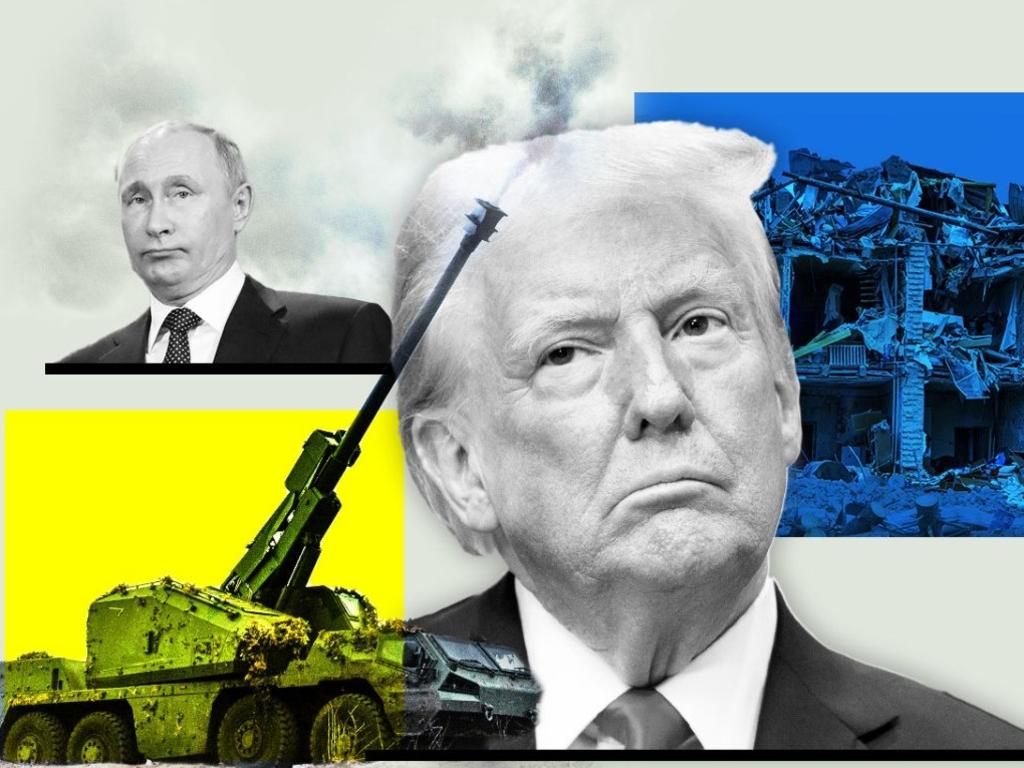Trump hasn’t finished making Zelensky and Ukraine squirm
The US administration’s withholding of intelligence from Kyiv was an act of bullying that threatens the future of NATO.

It is difficult in the spook-world of shadows and whispers to talk of an uproar in the intelligence community about the US commander-in-chief yet I found myself last week listening to a former officer furiously describing President Trump as the Flashman of our times.
Flashman being the bully in Tom Brown’s School Days who has the schoolboy hero held against the licking flames of a fire.
The Trump court’s recent Oval Office roasting of Ukraine’s President Zelensky was a metaphorical one but the aim was the same: to break the will of an independent spirit.
What truly shocked US allies was the follow-up: the rapid, cumulative removal of support for a government that has been fighting for three years against an expansionist Russia that wants to rewrite the post-war order.
First, the administration blocked military technical assistance, then intelligence sharing.

Zelensky is being shrunk – told that he has got too big for his boots – and the survival chances of his country deliberately reduced.
That may be construed as part of a Trumpian plan to bring Russia and Ukraine into talks that end up saving lives.
But the real lasting damage, apart from rewarding President Putin’s war of aggression, is that it permanently damages the way intelligence sharing between allies can make the world safer.
Intelligence gathering is being politicised; intelligence access and distribution becoming transactional, even whimsical.
Until the US pause was lifted last night (Tuesday), that presented real-world consequences for a nation under nightly attack.
The foundation stone of western intelligence pooling was the Five Eyes, always dependent on input from the US agencies but also Britain’s GCHQ and MI6, and extended to Australia, Canada and New Zealand.
Data and analysis gathered by these allies since the 1950s was pooled on a very personal level based on professional trust and specialisations.
It could be passed on to friendly powers unless specified by a prefatory “Aus/Can/NZ/UK/US eyes only” note. Washington was always the defining voice.
When David Lange, New Zealand’s prime minister from 1984 to 1989, took an anti-nuclear and implicitly anti-US stance, Wellington was partially cut out from the Five Eyes for two decades.
Last week Trump ruled that information should not be passed on to Kyiv. (That doesn’t stop some information getting to Kyiv through France, which is not bound by the Five Eyes omerta.)
The point: to demonstrate to Zelensky that defiance of the US administration does not pay. US intelligence supplies the data needed to operate Himars rocket launchers and ATACMS missile systems, useless without precise target locations.

America’s satellite data can tell when Russian bombers are taking off towards Ukraine; intercepts of internal communications from the Russian defence ministry can yield information about planned attacks. Then the US withdrew satellite imagery. The Ukrainians know the position of Russian airbases used to hit their country but could not see if there were aircraft preparing to take off.
Trump, in short, poked a stick in one of Kyiv’s eyes.
He has been systematically changing the battlefield in Russia’s favour.
If the US starts to ration ammunition supplies, Ukraine can get by for a while on European supplies – but the rate of fire would have to be reduced. A next step could yet be the shutting down of Elon Musk’s Starlink satellite-powered internet provider. That keeps mobile coverage alive during heavy bombardment, hospitals functioning, the trains running.

The Biden administration created these competitive advantages for the Ukrainians – in the war’s early days Ukrainian snipers had astounding “luck” in shooting senior Russian officers in frontline positions thanks to US intelligence – and Trump took them away.
The bone-headed narrative from the Oval Office is that Zelensky was spoilt by Biden, that the tail wagged the dog.
The current tone, even after yesterday’s (Tuesday’s) apparent concessions, comes over as calculated Putin favouritism.
But Trump’s defenders see it as pedagogic, reducing the risk of strategic decisions being manipulated by a leader who has slipped out of America’s control.
Current US policy is about creating options – getting Europe to take over the cost of defending Ukraine (conceivably by buying US weapons and then donating them to Kyiv) or engineering a defeat that means the fall of Zelensky and a new, partitioned but appropriately grateful Ukraine. It is even possible in Trumpworld to entertain both strategic possibilities simultaneously and consider both as victories.
Either way, you wouldn’t bet on the restoration of US intelligence and arms supplies to Ukraine going smoothly. Flashman will want to see Zelensky squirm some more.
The current frustration and sadness of the spook community is Trump’s wanton abandonment of America’s technical edge to outwit Putin.
During the 1962 missile crisis, the Americans demanded to know whether the Kremlin was deploying nuclear-capable weapons in Cuba: “Yes or No?” Soon after, the US government declassified top-secret spy plane imagery refuting Moscow’s denials.
The Kremlin backed down, the Third World War crisis was averted and the US had demonstrated the diplomatically creative use of spycraft.
By contrast, Trump has been denying the use of western intelligence to a country battling for western values, and by doing so ensured that Zelensky’s defeat would be tantamount to the defeat of NATO.
What started as an attempt to assert dominance over a beleaguered European state, an act of what has been described as neanderthal realpolitik, is likely to further splinter the West. Bullies are back.
The Times





To join the conversation, please log in. Don't have an account? Register
Join the conversation, you are commenting as Logout